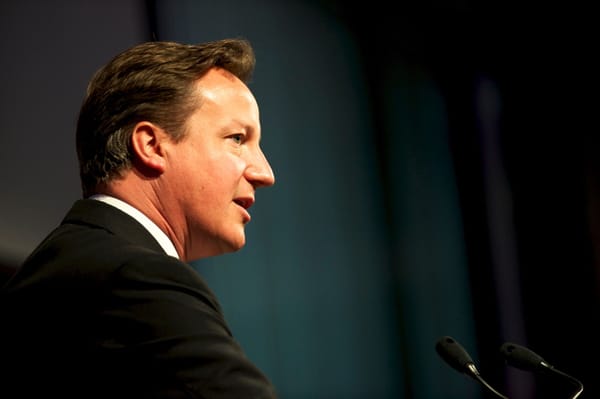The return of David Cameron to the upper deck of Tory politics may begin a national crisis in Britain that ends in grave political disorder. It seems highly unlikely that it will save the Conservative Party from electoral defeat next year. But it is such a stinging smack in the chops for so many formerly loyal Conservatives that it will certainly cause some voters to defect rightward, and may even lead members of Parliament and former government ministers to do the same.
“It might possibly destroy the British Conservative Party for good.”
If so, it might possibly destroy the British Conservative Party for good, endangering the whole national constitution and unleashing who knows what. I should be pleased, but I am not. How I used to hope that this would happen, because I believed it might bring about the creation of a new and genuinely conservative grouping. But the events of the last few years suggest that it is more likely to produce a British Trumpoid eruption: noisy, crude, and fundamentally pagan. For proper conservatives, some sort of internal exile looks like the best we can hope for.
For sure, Cameron’s reappearance is a deliberate insult to conservative-minded voters. They rightly blame him for the morally and socially liberal putsch that overwhelmed the Conservative Party in the years before 2010. The Labour party had spent a great deal of effort trying to achieve its historic aim of forcing the Tories to accept its agenda and agree not to reverse it; in David Cameron, it got its wish. He named himself “the Heir to Blair.” This coup, probably the biggest event in British politics since 1945, took place mainly offstage. The hollow husk of the Tory Party was simply stripped of all vestiges of conservative thought, and re-engineered as a “red-green” faction devoted to Net Zero, the sexual revolution, and militant egalitarianism. Its confusion over British membership of the European Union, which eventually destroyed Cameron’s premiership, is still not resolved. Oddly enough, when the United Kingdom actually left the European Union, the event turned out to be much less important than anyone had expected it to be.
